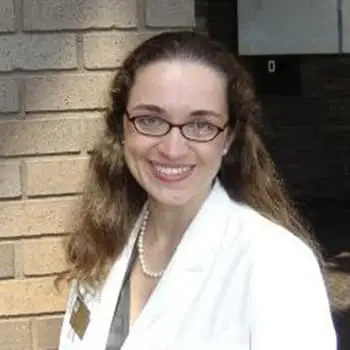Benzodiazepines, or benzos, are used to treat sleep, anxiety and panic disorders and are widely prescribed in the United States. However, people often don’t understand the risks of taking them. While the opioid epidemic is infamous in Colorado, benzodiazepine abuse is also a significant problem.
One of the side effects of benzos like Xanax and other similar drugs is developing a physical dependence on them. This can happen relatively quickly, even if you’re taking them exactly as prescribed by a doctor.
When you’re physically dependent on benzos and try to stop taking them, you may go through benzodiazepine withdrawal symptoms ranging from mild to severe. The withdrawal and detox period is one of the biggest hurdles to stopping the use of benzos, but detox programs can help.
Benzo Withdrawal
Many people don’t realize that even taking prescribed benzos for a short period of time may lead to withdrawal symptoms when you stop. Benzo withdrawal can be dangerous, but medical detox programs can help a person safely stop benzos.
This Season, Give Yourself the Gift of a Fresh Start.
Whether you are struggling with addiction, mental health or both, our expert team is here to guide you every step of the way. Don’t wait— reach out today to take the first step toward taking control of your life.
Benzo Withdrawal Symptoms
Benzodiazepine withdrawal symptoms can range from mild/moderate to severe. The most common mild or moderate benzo withdrawal symptoms include:
- Sweating
- Rapid heartbeat
- Tremor
- Insomnia
- Nausea or vomiting
- Hallucinations
- Agitation
- Anxiety
However, severe benzo withdrawal symptoms are also possible. Most notably, these include the risk of seizures, which may be life-threatening in some cases. The severity and extent of withdrawal symptoms during benzo detox depend on the individual, how long they used the drugs and how much they were regularly using.
This makes it important that people who want to detox from benzos do so in a medical facility that follows very specific benzodiazepine withdrawal treatment guidelines. Sometimes, benzodiazepine withdrawal treatment requires tapering off the drugs. This means the person would gradually take smaller doses over time to mitigate some of the more severe withdrawal symptoms. Most of the time, however, they’ll undergo a detox period where they are monitored and withdrawal symptoms are treated individually until they subside.
Another issue regarding benzodiazepine withdrawal treatment protocol is that people will often experience rebound symptoms when they try to stop using these drugs. For example, people often start using benzos to treat anxiety, so during withdrawal, not only do they experience anxiety, but it’s worse than it was before they started using benzos.
Benzo Withdrawal Timeline
A benzodiazepine withdrawal timeline often looks like this:
- First stage: Symptoms like insomnia and anxiety can emerge during the first stage of withdrawal. These symptoms may be more severe with short-acting benzos like Xanax. Withdrawal can start six to eight hours after the last dose of short-acting benzos. In contrast, for long-acting benzos like Valium, withdrawal symptoms can begin 24 hours to 48 hours after the last dose.
- Second stage: More severe symptoms may set in during the second stage of withdrawal. For short-acting benzos, the second stage can last ten to 14 days, while it can last weeks or months for long-acting benzos.
- Third stage: Some people may experience protracted withdrawal syndrome, which refers to withdrawal symptoms that appear months after someone stops using the drug. These protracted benzo withdrawal symptoms may wax and wane, making the benzo withdrawal process difficult to predict.
Benzo Withdrawal Seizure
When benzo withdrawal seizures occur, they tend to be grand mal seizures in which the person becomes unconscious and has violent muscle contractions. These seizures can be very serious and even lead to coma and death. Withdrawal seizures can occur with any benzo that is discontinued abruptly instead of being tapered under close medical supervision — even if the person is not taking a high dose. However, taking a high-dose benzo for more than 15 days increases a person’s risk for seizures during benzo withdrawal.
If a person is having a benzo withdrawal seizure and they aren’t already in medical care, there are several things you can do to help:
- Call 911.
- Stay with the person and time how long the seizures last.
- Place a soft object under the person’s head and neck.
- Keep the person away from sharp objects.
- Loosen any tight clothing like belts or necklaces.
- Turn the person onto their side with their mouth tilted toward the ground.
Benzo Detox
Stopping a benzo under close medical supervision is the safest way to quit using benzos. Quitting a benzo cold turkey can be dangerous without medical supervision. However, tapering benzo use can be a complex process that also requires close monitoring by a doctor. In some cases, a taper will require switching benzos, temporarily halting the taper or decreasing the benzo dose at a slower rate than planned. Attending a medical detox program or undergoing a medically-supervised taper can help a person stop benzos as safely as possible.
Benzo Detox Centers in Colorado
If you’re trying to detox from a benzo, you should only do it under medical supervision. The Recovery Village at Palmer Lake offers benzo detox program options for people in Colorado and around the nation.
Following detox, The Recovery Village at Palmer Lake will coordinate with our inpatient and outpatient rehab centers to help you stay off benzos for good. Our care doesn’t end with rehab; we also offer aftercare options like alumni and support groups to help you maintain your sobriety for life.
If you or a loved one is trying to quit benzos, call our knowledgeable intake experts to learn more about our benzo detox programs.









